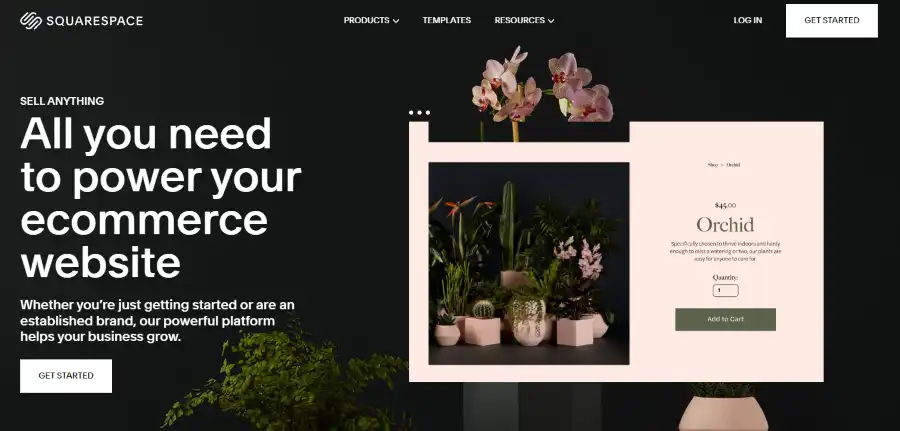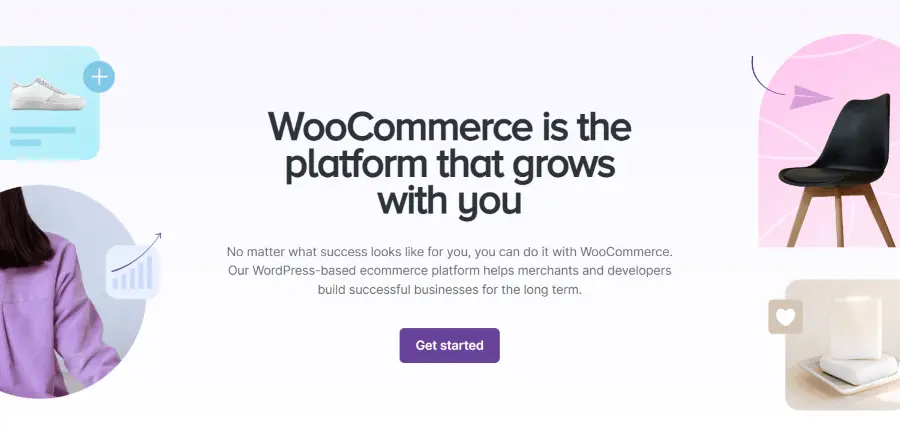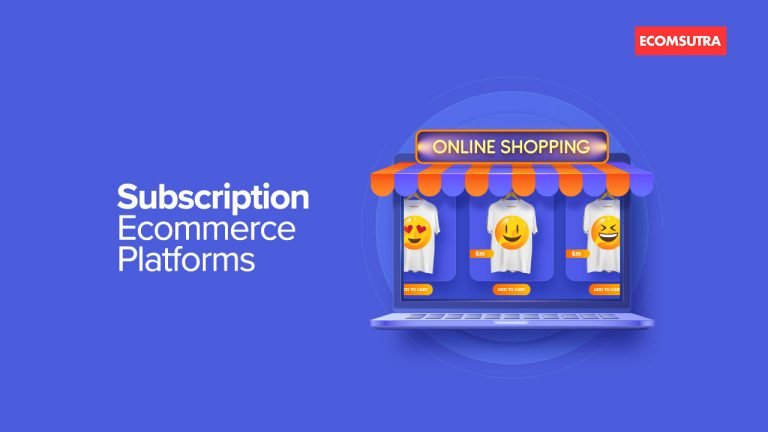The rise of subscription-based business models has created a new wave of opportunities for entrepreneurs and small business owners to monetize their products and services and generate recurring revenue.
If you want to start an eCommerce subscription business, you will need a special type of eCommerce platform that enables you to accept recurring payments and helps you manage your subscriptions and customer orders effortlessly.
So, in this article, I picked some of the best subscription eCommerce platforms and reviewed them to help you determine the right platform based on your business requirements.
Key Features of Subscription Ecommerce Platforms
Most eCommerce platforms offer a range of features to help you manage your online store, but subscription eCommerce platforms are designed to provide you with the tools and features you need to launch and manage successful subscription-based businesses.
So, while choosing an eCommerce platform to sell subscriptions, you must look for the following features –
- Subscription management: The ability to create, manage, and customize subscription plans and offerings, including the ability to offer different pricing tiers and subscription lengths.
- Billing and payments: Automated billing and payment processing, including support for multiple payment methods, such as credit cards, PayPal, and other payment gateways.
- Customer management: Tools for managing customer accounts, including the ability to track customer information, manage subscriptions, and communicate with customers about their accounts.
- Product management: The ability to create and manage subscription products and services, including product descriptions, pricing, and inventory management.
- Analytics and reporting: The ability to track subscription revenue, customer data, and other key metrics to help businesses understand their performance and make informed decisions.
- Security and compliance: Robust security features and compliance with industry standards, such as PCI DSS, to protect sensitive customer information and ensure secure transactions.
- Integrations: The ability to integrate with other tools and platforms, such as email marketing software, shipping providers, and fulfillment centers.
Beyond these features, you may also want to consider pricing plans and transaction fees incurred by the platform to make an informed decision.
Top 5 Subscription Ecommerce Platforms
In this section, I have reviewed and ranked top subscription eCommerce platforms based on the above-listed features.
So, if you are ready, let’s dive into each platform.
1. Shopify

Shopify is a popular and widely used eCommerce platform that provides a range of features and tools to help you sell products and services online. From product and customer management to detailed analytics reporting, it provides you with everything to set up an online store and grow it.
Although Shopify doesn’t have native subscription management features, there are many Shopify subscription apps that you can use to set up and manage different subscription plans, and automatically collect recurring payments.
With direct integration with these apps, Shopify allows you to leverage customer data to deliver personalized shopping experiences based on their location, past purchases, and other factors.
Aside from its advanced features, Shopify is super easy to use with a clean user interface. It also comes with hundreds of pre-design themes that you can easily customize using its drag-and-drop builder and boost sales with its built-in marketing tools.
Key Features –
- Beginner-friendly with easy to use drag-and-drop builder
- Free & paid customizable themes
- Wide range of 3rd-party subscription apps
- Multiple supported payment gateways
- In-house POS system for offline sales
- Detailed analytics reporting on traffic and sales revenue
- App marketplace with a range of apps and integrations
Pricing Plans – Shopify offers a free trial on all its paid plans starting at just $39/month, giving you access to all the essential features. However, to sell subscription services, you will require a subscription management app with additional charges.
Further reading –
2. Squarespace

Squarespace is an easy-to-use website builder that enables you to create beautiful storefronts to sell products and services. It comes with a built-in subscription management feature that allows you to create and manage subscriptions for physical products and services.
You can set up a subscription plan while creating or adding new products. You can select subscription frequency and allow Squarespace to automatically collect charges and renew the plan till the customer chooses to cancel it.
Creating a storefront on Squarespace is super easy as it comes with 100+ customizable templates and provides you with drag and drop page editor, giving you control over the look and feel of your store pages.
Key Features –
- Free custom domain
- Easy-to-use store builder
- 120+ stunning online store templates
- Built-in subscription management feature
- Supports automatic recurring billing and payments
- Range of extensions for 3rd-party tools
- Detailed analytics reporting
Pricing Plans – Squarespace has 4 paid plans starting at just $16/month. However, to sell subscriptions, you will have to opt for its Commerce Advanced plans, costing $65/month & $49/month if paid annually.
Further Reading –
3. WooCommerce

WooCommerce is an open-source eCommerce platform that lets you set up an online store to sell anything, including subscription boxes and services. However, similar to Shopify, WooCommerce doesn’t come with built-in subscription management features – you will have to install subscription plugins to add essential features for creating and managing subscription options.
Depending on your subscription plugin, you can offer multiple subscription plans for your products and automatically collect the recurring charges. It provides a clean user interface from where you can manage your customer data and their subscription plans.
Moreover, since WooCommerce is based on WordPress, you will have access to plenty of themes and plugins to set up your storefront and add functionalities without writing a single line of code.
Key Features –
- Free Forever
- Highly customizable & beginner-friendly
- Tons of ready-to-use themes
- Range of subscription management plugins
- Direct integration with major payment gateways
Pricing Plans – WooCommerce is a free software, but to host it, you will have to invest in a trusted WooCommerce hosting provider, starting at just 2.96/month.
4. BigCommerce

BigCommerce is another powerful eCommerce platform that enables you to set up a storefront to sell anything, including subscription products. However, it doesn’t offer subscription management features natively, but allows you to connect your store with Recharge or other subscription management platforms.
Besides subscription options, BigCommerce provides you with powerful built-in tools for store designing, product management, sales, and marketing, allowing you to manage everything effortlessly. It also provides a drag-and-drop page builder to help you customize pre-designed templates or create new pages without writing a single line of code.
Key Features –
- Highly scalable platform
- Advanced built-in SEO and marketing tools
- Direct integration with popular subscription platforms
- Multiple payment processor options
- App store with a range of 3rd-party apps and extensions
- In-depth analytics reporting
Pricing plans – BigCommerce offers a 15-day free trial on its paid plans, starting at just $39/month with access to all its essential features.
Further reading –
- BigCommerce Review – Is it the right platform for you?
- Must-have BigCommerce apps for your store
5. Wix

Wix is a popular website builder that enables you to set up a fully-functioning storefront without any coding. It provides you with everything from, customer management, product management, a seamless checkout system, and most importantly drag-and-drop builder to create your store pages within minutes.
Wix comes with a built-in subscription management feature that lets you create subscription options from a specific product or collection. Using this feature, you can offer customers to choose between one-time purchases or select a subscription plan for the product.
You can also offer discounts to encourage customers to choose subscriptions over one-time purchases. Since it is a built-in feature, you can offer subscriptions without any additional fees.
Key Features –
- No-code website builder
- Customizable online store templates
- Built-in subscription management feature
- Offer multiple subscription options for a product
- Offer discounts on subscription plans
- Allow auto-renewals
- Wide range of extensions for 3rd-party tools
- Robust analytics reporting
Pricing Plans – Wix allows you to use the platform for free. However, to launch your store with subscription features, you will require to opt for one of its Business and eCommerce plans, starting at just $23/month.
Further reading –
Which is the best subscription eCommerce platform for you?
Selling subscriptions is one of the profitable eCommerce business models, which is rapidly growing, and there are many platforms available for businesses looking to launch and manage subscription-based businesses. In this article, we’ve explored some of the best subscription eCommerce platforms and their key features to help you choose the right platform.
Shopify is a powerful platform that offers robust product and customer management features and allows you to create and manage subscription plans via 3rd-party subscription apps.
Meanwhile, Wix and Squarespace are easier-to-use platforms and provide built-in subscription management features, making it easier to manage subscriptions without additional costs.
On the other hand, WooCommerce is a free platform for which you will need basic WordPress and web development knowledge to build an online store to sell subscriptions.
So, based on your technical knowledge, business requirements, and budget, choose the most suitable platform and start selling your products and services on a recurring basis. And, if you want to explore more platforms to sell subscription-based digital products and online courses, you should read the following hand-picked articles next –



